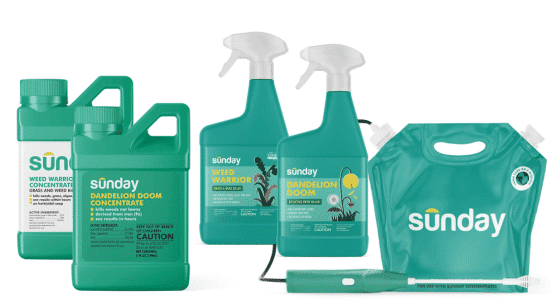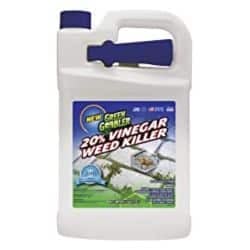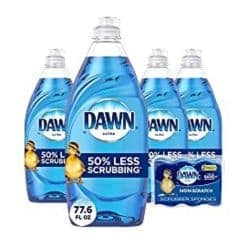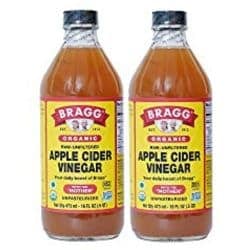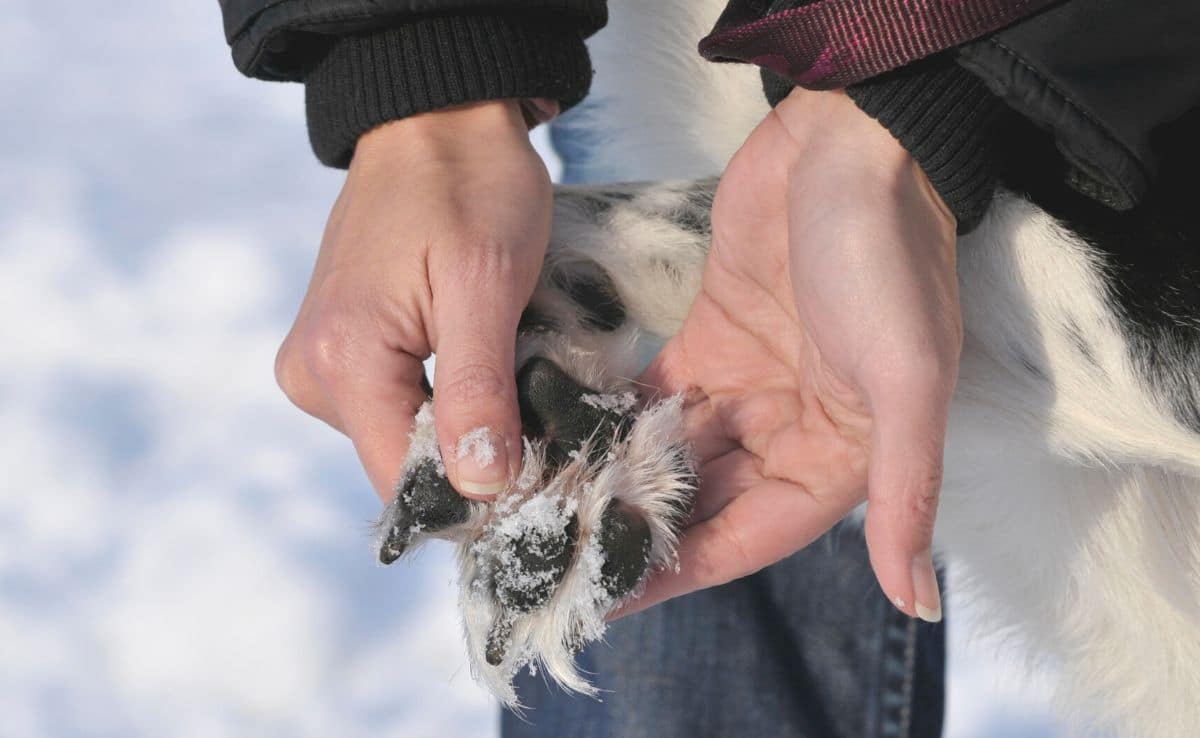Best Pet-Safe Weed Killer (Tested By Pet Owners): Dog-Friendly, Natural & Homemade Options
When you purchase through links on our site, we may earn a commission. Here’s how it works.
Weeds are relentless. They pop up where they don’t belong, thrive in the heat, and can take over your yard almost overnight. Getting rid of them is tough enough, but when you’ve got curious pets or kids in the mix, you’re not just battling weeds. You’re also trying to protect your family from harmful chemicals. That’s why we’re sharing the best pet-safe weed killers and practical solutions that keep your lawn looking great without putting your two or four-legged family at risk.
Table of Contents
My own dog once licked dew off the grass just minutes after I sprayed a weed killer. That was the last time I used anything I couldn’t pronounce. If your pup is anything like mine: sniffing, digging, and taste-testing the backyard, you need a safer solution. We share store-bought sprays and DIY organic recipes that do the job without putting your four-legged explorers in danger.
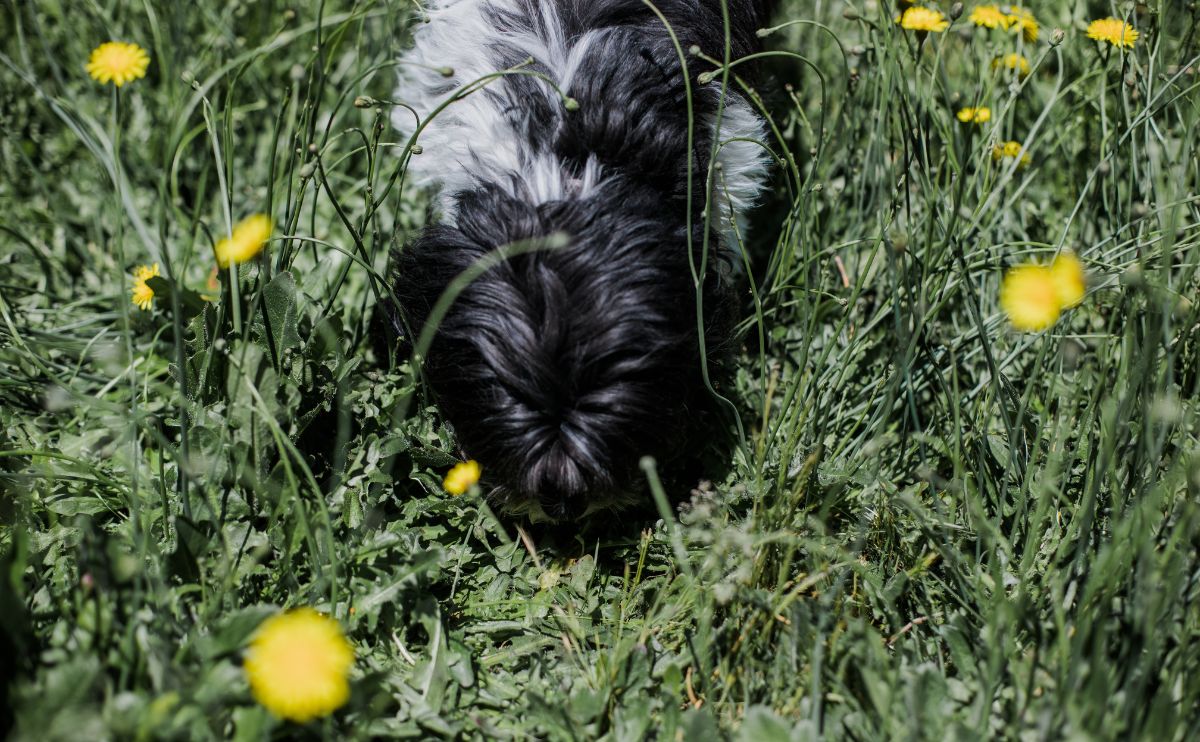
The Hidden Dangers of Common Weed Sprays for Pets
Most commercial weed killers contain harsh chemicals, such as glyphosate, 2,4-D, and dicamba, which are designed to kill plants at the root level. However, these same chemicals can pose serious health risks to dogs. Even after the product dries, residue can linger on grass or soil. If your dog walks through, rolls in, or licks their paws afterward (which most dogs do), they risk exposure to toxins that can irritate the skin, upset the stomach, or, in high doses, cause more serious issues such as liver damage or neurological effects.
That’s why it’s so important to choose a weed killer that’s tough on weeds but gentle enough for your dog to safely roam the yard again.
Using Roundup on Your Lawn? Here’s Why That Matters for Your Dog
Roundup is one of the most widely used weed killers in the world, but it’s also one of the most controversial. Its active ingredient, glyphosate, has come under increasing scrutiny for potential health risks to both humans and pets. While manufacturers claim it’s safe when used as directed, studies have raised concerns about long-term exposure, especially for animals who spend a lot of time in treated areas.
If your dog licks the grass, rolls around in the yard, or chews on plants, even trace amounts of glyphosate could be risky. Many pet owners have chosen to steer clear, opting for safer alternatives without the same cloud of controversy.
Want to know more? Check out our full Roundup review here to see how it stacks up and whether it’s a good fit for pet-friendly yards.
Organic Weed Killers Sound Safe: But are They Dog-Friendly?
Organic weed killers are popular for pet parents who want to avoid harsh chemicals altogether. These products typically rely on natural ingredients, such as vinegar, salt, citric acid, or essential oils, to break down weeds without leaving behind harmful residues.
While they’re generally safer for pets, some natural ingredients, like clove or citrus oils, can still cause irritation if ingested or applied in large amounts. The key is to choose a product with simple, non-toxic ingredients and follow the label instructions carefully.
Organic options are especially effective on young or shallow-rooted weeds and work best when applied during hot, sunny weather. You might need a few applications for more persistent invaders, but the peace of mind is often worth the extra effort.
Know Before You Spray: Natural Doesn’t Always Mean Harmless
Just because a weed killer is organic doesn’t mean it’s risk-free for your garden. Many natural formulas, especially DIY options, use salt to dry out weeds and stop them from growing. The problem? Salt doesn’t just stay on the surface. It seeps into the soil, raising salinity levels and making it harder for other plants to thrive.
A salty soil base could ruin your hard work if you plan to replant or grow flowers and veggies in that spot later. Flushing that salt out of the ground can take a considerable amount of time (and a substantial amount of water). So before you spray, consider the long game, especially in areas where you want to encourage new growth.
Because a Safe Yard Means More Zoomies
There’s nothing better than watching your dog race through the yard, ears flopping, tail wagging, and paws flying across the grass. When you choose a pet-safe weed killer, you’re not just protecting your lawn. You’re giving your dog the freedom to enjoy it.
Need a reminder of why it’s all worth it? Just watch this happy pup soaking it all in
What Makes a Weed Killer “Pet-Safe”?
Just because a product is labeled “natural” doesn’t mean it’s safe for your dog, cat, bunny, or barefoot toddler. Some harmless ingredients, like clove oil or citrus extracts, can still irritate paws or cause digestive issues if licked or ingested.
- A truly pet-safe weed killer does more than skip the harsh chemicals. It should:
- Avoid persistent toxins that linger in the soil or on surfaces.
- Dry quickly to minimize exposure risk.
- Provide clear instructions on when it is safe to let pets back into the area.
- Be made from ingredients that are non-toxic to both pets and wildlife.
We have taken all of this into consideration while reviewing our top picks. Whether spraying the backyard, targeting cracks in the driveway, or spot-treating your garden, the following pet-safe weed killers are tough on weeds and much gentler on your four-legged family.
Best Pet Safe Weed Killer: Sunday Lawn Care Review
If you’re searching for a weed killer that’s safe for pets, Sunday’s all-natural products are a solid choice. Their formulas are designed to be tough on weeds while being gentle enough for yards where dogs love to play. Sunday’s weed control solutions utilize ingredients such as herbicidal soap and iron-based compounds, which effectively target unwanted plants without the use of harsh chemicals.
Shop All Weed Control Products From Sunday
Along with ready-to-use sprays and concentrates that can be mixed in a sprayer, Sunday also offers custom lawn care plans. These plans are tailored to your location and include a lawn analysis, so you’re not just killing weeds. You’re building a healthier, greener yard from the ground up.
- Weed Warrior: Kills grass, weeds, algae, and moss
- Dandelion Doom: Kills most broadleaf weeds
What Happened When We Tried Sunday Weed Killer Ourselves
“We noticed some dandelions popping up in our yard, so we applied Dandelion Doom (sent to us by Sunday in exchange for an honest review). The application process is easy, but the spray bottle leaks all over my hand when I use it, so wearing gloves is crucial. I checked the dandelions three days later, and they were dead. This was an easy way to tackle these weeds, and we will pull them from the lawn as the directions state.”
– Kimberly Alt, Rescue Dog Mom & Canine Journal Writer
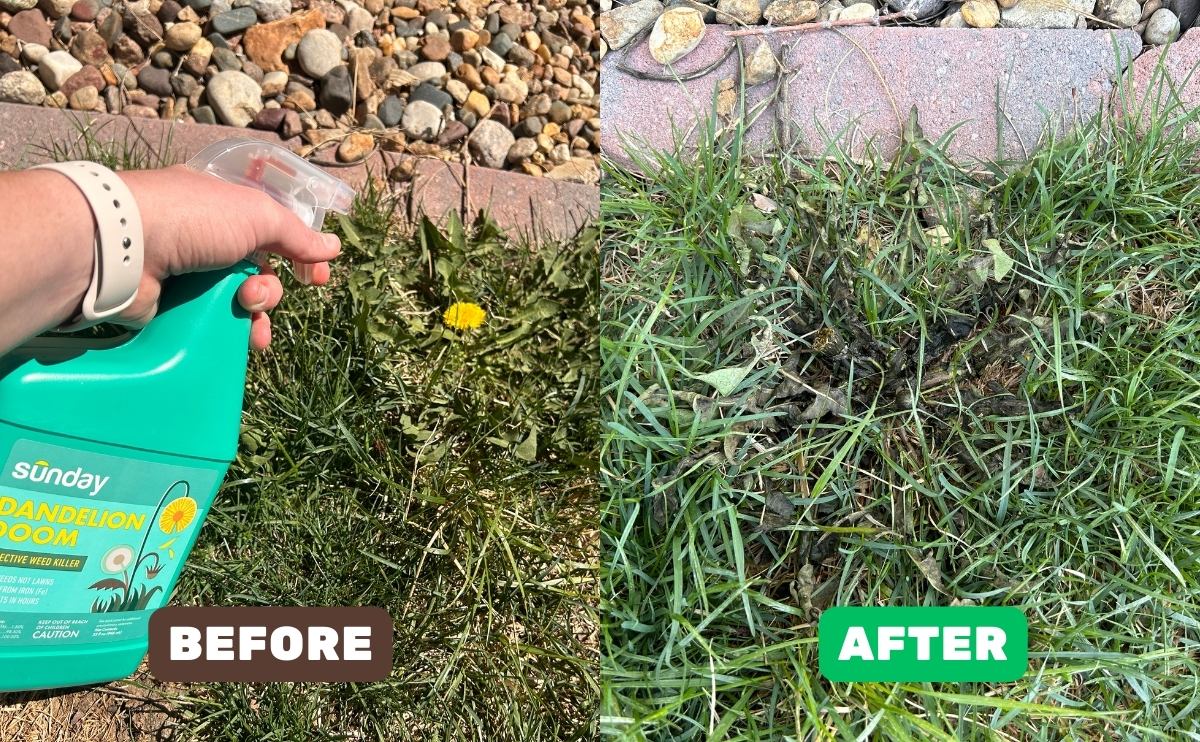
Want the Full Scoop on How Sunday Stacks Up?
Are you curious if Sunday’s pet-safe weed killer lives up to the hype? We were, too. We tested it in our yard (with our dog supervising) and shared the honest results. Check out our full Sunday Lawn Care review here.
Best Organic Pet-Safe Weed Killer: Green Gobbler Vinegar Weed & Grass Killer Review
The Green Gobbler is another one of our picks for the safest weed killer for dogs. It spray kills weeds (and grass) in a few hours. Think of this like salad dressing with a vengeance. Made from 20% acetic acid, this powerful natural weed killer scorches unwanted growth in hours without leaving behind scary chemical residues. It’s non-selective, so spray carefully, but pet owners appreciate that it breaks down quickly and doesn’t leave behind any toxic residue.
It is made from corn, and is four times stronger than table vinegar. Green Gobbler is no pantry item. The solution is certified organic with no cancer-causing chemicals. You can use it anywhere weeds grow, including sidewalks and pavers. It burns through unwanted growth quickly, leaving no toxic chemicals behind – something pet parents can feel good about.
Be careful not to spray Green Gobbler anywhere that you want grass to grow. Use during full sun and not right before or after rainfall. Green Gobbler’s weed killer comes with a 30-day money-back guarantee. Spray the mixture directly onto the dandelion heads, but avoid spraying anywhere else. The spray will kill the dandelions but not the grass, as long as you don’t get it on the lawn.
Pricing
- 1 Gallon: Check Amazon for availability
DIY Weed Killers You Can Make at Home (That Are Safe for Dogs)
If you are looking for a homemade weed killer safe for pets, here are some recipes. You can easily mix up a few common household ingredients to make the best organic weed killer at home. If you don’t already have these things around the house, we’ve linked to where you can order them online to make your own weed killer that’s safe for dogs.
Natural Herbicide Recipe: Vinegar and Dawn Solution
This natural weed killer is safe for dogs and contains ingredients such as salt, vinegar, and liquid dish soap (e.g., Mrs. Meyer’s, Dawn).
Ingredients
- 1 gallon white vinegar (household/distilled)
- 1 cup salt $16.49 for 5 lbs (Made in USA and GMO free)
- 1 tablespoon liquid dish soap
- Spray bottle – $15.99 for 4 – 16 oz bottles (mist, stream, and off settings)
Directions
Combine the vinegar weed killer ingredients in a spray bottle and apply it to weeds during the sunniest part of the day for optimal results.
Note: Like other toxic weed killers, the vinegar’s acetic acid in this recipe will harm all plants and grass that it come into contact with. So, no matter the type of weed, use with caution and squirt directly on the weed itself versus applying it to the area around it more liberally.
Does Vinegar Really Work on Weeds?
Vinegar can be an effective natural weed killer, especially for young or shallow-rooted weeds. Studies, including one from the USDA Agricultural Research Service, have shown that household vinegar (5% acetic acid) can kill some weeds. In comparison, horticultural vinegar (20% acetic acid) is more potent and acts more quickly. Vinegar acts as a contact herbicide, meaning it burns the plant’s above-ground parts but does not kill the roots, so repeat applications may be necessary.
Apple Cider Vinegar Recipe: Natural and Pet-Safe
Are you curious about making weed killer with apple cider vinegar? This simple recipe substitutes apple cider vinegar for white vinegar and omits dish soap, offering a more natural and pet-friendly approach to weed control.
Ingredients
- 2 cups of apple cider vinegar
- 1/2 cup of Epsom salt
- Spray bottle – $15.99 for 4 – 16 oz bottles (mist, stream, and off settings)
Directions
- Fill a spray bottle mostly full with apple cider vinegar.
- Place a funnel into the mouth of the bottle and add salt.
- Shake the bottle well to mix the ingredients. Then, spray the weed directly with the apple cider vinegar weed killer.
The weeds should crumble away within a day. Again, do not spray this solution onto anything you want to keep alive as the vinegar will likely harm it.
Our Real-Life Test Results Using Homemade Weed Killers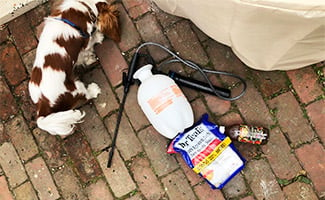
“Our patio had weeds and grass growing in between the bricks. I happened to have apple cider vinegar and lavender Epsom salts on hand, so I mixed them in a pump sprayer we had for another home project. I sprayed it all over the cracks, and within a day, they browned up and were dead. It was a bit smelly, but our dog did not try and lick the solution. In fact, he stayed away because of the terrible odor from the apple cider vinegar.”
– Sadie Cornielus, Dedicated Dog Mom & Canine Journal Creative & Marketing
Watch: Can Vinegar & Epsom Salt Kill Weeds Fast?
Check out the video below to see how easy it is, along with a before-and-after comparison.
As you can see in the video above, yes, it does. But like the spray above, the vinegar is potent and highly effective at killing everything in its path, so don’t overdo it.
Targeting Sidewalk Cracks & Young Weeds: What Works Best
Try this concoction if you have larger surface areas, such as a patio or mulch bed, instead of concentrated spots in your yard. It’s less harsh than the recipes that include vinegar, so it works well for new growth weeds that are easier to kill.
Ingredients
- 1 pot of water
- 1 tablespoon of salt – $13.99 for 3 – 26 oz containers
Directions
Boil a pot of water and add one tablespoon of salt. Pour over the weeds immediately while the water is still hot but not boiling. Be cautious not to spill the hot water on you as it could burn your skin. You should see results almost instantly.
Homemade Dog-Friendly Weed Killers That Are Safe For Grass
The recipes above work well but can hurt your grass, as we mentioned. So if you want safer ways to kill weeds without ruining your yard, here are two homemade weed killers we suggest for lawns.
Corn Meal: A Surprisingly Effective Weed Prevention Hack
Ingredients
- Corn Meal – Check Amazon for availability for 40 lbs
- Spray bottle – $15.99 for 4 – 16 oz bottles (mist, stream, and off settings)
Directions
To prevent weed growth in your lawn, remove all existing weeds first. Then, sprinkle Soil Mender corn meal on your yard. It suppresses the development of small feeder roots and effectively prevents crabgrass, dandelions, curly dock, knotweed, lamb’s quarters, pigweed, and plantain. It will not hurt the grass in your yard or any other plants.
Simple Soap & Water Spray That Won’t Harm Grass
Ingredients
- Dish Soap – $14.37 for 3 -16 oz containers
- Spray bottle – $15.99 for 4 – 16 oz bottles (mist, stream, and off settings)
- Water
Directions
Combine ten parts water and one part liquid dish detergent in a spray bottle. During the hottest part of a non-rainy day, spray the weeds with the mixture until soaked. The water will evaporate due to the heat, and the soap will get sticky on the weeds, drying them out.
Natural Doesn’t Mean Foolproof: 5 Common Mistakes with Pet-Safe Weed Killers
Switching to a natural or pet-safe weed killer is smart, but it doesn’t mean you can spray without thinking. Even the safest formulas can cause problems if misused. Here are a few common mistakes to avoid:
1. Spraying on Windy Days
It might not seem like a big deal, but even natural sprays can drift onto nearby plants you actually want to keep, or worse, onto your dog’s favorite sunbathing spot.
2. Overusing Salt-Based Solutions
Salt is powerful, but too much can damage soil and make it hard for anything (even grass) to grow back. Stick to using it in cracks, gravel areas, or along fence lines, anywhere you’re not planning to replant.
3. Ignoring the Weather Forecast
Natural sprays like vinegar work best on sunny, dry days. If rain rolls in too soon, the product will wash away before it can do its job.
4. Letting Pets Out Too Soon
Just because it’s natural doesn’t mean it’s safe to lick. Always let treated areas dry completely before letting your dog explore. Some essential oils used in organic sprays can still irritate paws or upset sensitive stomachs.
5. Using the Wrong Concentration
A little vinegar goes a long way, but using it straight from the bottle or mixing DIY recipes too strongly can damage more than just weeds. Follow label directions or trusted recipes for best results.
When to Call the Vet
If your dog shows signs like vomiting, drooling, paw licking, loss of appetite, or unusual behavior after spending time in a recently treated area, it’s best to call your vet right away. Even natural products can cause a reaction if ingested or absorbed through the skin. Don’t wait when in doubt; your vet can guide you on what to do next.
Smart Prevention: Use Ground Cover and Mulch to Stop Weeds Naturally
You may also consider a ground covering or cover (such as this one by Dewitt) or a thick layer of mulch (at least two to three inches). How do these work? You are blocking their access to sunlight, and without photosynthesis, plants can’t grow, including weeds. They’re not 100% foolproof, though but it does help in smaller beds (not ideal for entire yards).
Frequently Asked Questions
Choosing a pet-safe weed killer can feel overwhelming, especially with so many options and opinions out there. Whether you’re wondering how often to spray, what ingredients to avoid, or if that DIY recipe is really safe for your dog, we’ve got you covered. Check out our most frequently asked questions below to get the clarity you need before you spray. If you don’t see yours, let us know in the comments. You can also visit our forum to connect with other dog owners and experts.
How Long Do I Keep My Dog Off Grass After Spraying Weed Killer?
We recommend keeping your dog off the grass until the weed-killer solution has had time to dry. While these dog-friendly weed killers shouldn’t harm your pet, if your dog walks around on still-wet treated weeds, the solution may be less effective.
Is Horticultural Vinegar Safe?
You may hear that horticultural vinegar can be more effective on your weeds than household (distilled) vinegar. This is true, but you should apply this product with caution.
Horticultural vinegar is modified vinegar produced in labs with a much higher concentration of acetic acid (typically has a concentration of 20% acetic acid vs 5% in household/distilled vinegar). This means it’s technically an herbicide and no longer a food product.
High concentrations of acetic acid can also cause harm to animals and be corrosive to the environment. For that reason, we advise you to use sparingly, if at all.
If you do use it, we recommend you dilute it and wear goggles and protective clothing. When the acetic acid concentration exceeds 11%, vinegar can burn skin and cause damage to your eyes. According to Good Housekeeping, concentrations above 20% are corrosive to tin, aluminum, iron, and concrete and can even cause blindness.
Chemicals Aren’t Just In Your Weed Killer
Weeds can be a pain in the grass, but they are inevitable without a watchful eye and active yard maintenance plan. We hope some of these recommendations can help you get your weed situation under control. Once you do, you can address other chemical exposures in your everyday life. We review pet-safe lawn fertilizer solutions and pest control products to help you avoid additional chemicals in your yard.
Safe Lawn, Happy Pup: Fun Outdoor Activities for Pets
Once your yard is weed-free and safe, it becomes the perfect playground for your pet. Try setting up a simple obstacle course with cones or tunnels to give your dog a fun physical agility challenge. A sprinkler or kiddie pool can turn playtime into a splash fest on a hot day. For mental stimulation, scatter treats or kibble in the grass and let your pup sniff them out, or create a small dig zone with soft soil for dogs who love to dig. Even a tetherball-style toy hung from a branch or a herding ball to chase can keep your dog entertained. A safe lawn isn’t just about weed control. It’s about making the space one your pet can truly enjoy.
